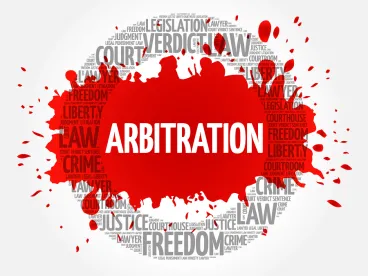To the extent that it attempted to limit the prospective waiver of procedural rights in favor of arbitration or other alternative dispute resolution, the 2019 amendment to the New Jersey Law Against Discrimination (NJLAD) is preempted by the Federal Arbitration Act (FAA), a New Jersey federal court has ruled in an unpublished opinion. New Jersey Civil Justice Institute, et al. v. Grewal, No. 19-17518 (D.N.J. Mar. 25, 2021).
The NJLAD amendment in Section 12.7, passed in March 2019, sought to make unenforceable any provision in an employment contract that waived any substantive or procedural right relating to discrimination, retaliation, or harassment claims. The court reasoned that, in violation of Section 2 of the FAA, Section 12.7 effectively disfavors agreements to arbitrate certain types of claims.
The ruling provides employers welcomed clarity and confirmation of FAA preemption and the continuing enforceability of their agreements to arbitrate employment disputes.
2019 NJLAD Amendment
The amendment was aimed largely at confidentiality and non-disclosure provisions in agreements to resolve claims of discrimination, retaliation, or harassment. Section 12.7 of the amendment stated:
-
A provision in any employment contract that waives any substantive or procedural right or remedy relating to a claim of discrimination, retaliation, or harassment shall be deemed against public policy and unenforceable.
-
No right or remedy under the “Law Against Discrimination,” P.L. 1945, c.169 (C.10:5-1 et seq.) or any other statute or case law shall be prospectively waived.
N.J.S.A. § 10:5-12.7.
Although this amendment did not mention arbitration on its face (to avoid an even clearer FAA preemption challenge) it was susceptible to interpretation that it sought to preclude arbitration agreements by curbing a potential litigant’s statutory right to file a complaint in court.
The Suit
On August 30, 2019, New Jersey Civil Justice Institute (NJCJI) and Chamber of Commerce of the United States of America (Chamber) filed suit, seeking a declaration that the FAA preempts Section 12.7. NJCJI is a non-profit organization whose members include businesses and professional organizations, many of which had arbitration agreements with their employees. The Chamber is a business federation that advocates on federal arbitration law and anti-business regulations. The defendant, the New Jersey Attorney General (AG), challenged the plaintiffs’ standing to file suit as no actual arbitration agreement between an employer and employee was in issue.
Standing to Sue
The court held that the NJCJI and Chamber had associational standing to sue, i.e., that their members otherwise have standing, that the interests to be protected are related to the organizations’ purpose, and that the claims and relief asserted do not require participation of individual members.
The NJCJI and Chamber presented evidence that members were injured by virtue of their signing arbitration agreements after the enactment of Section 12.7. Thus, these members exposed themselves to sanctions and civil penalties, unless they made significant changes to their business practices.
Because the AG effectively conceded an enforcement action was possible, the court concluded the members showed potential injury, even though no investigation or prosecution was pending.
In addition, the court found the action was germane to the stated missions of the NJCJI and Cham]ber to foster business growth and job creation, preserve their members’ rights to enter into arbitration agreements, and promote expeditious and fair resolution of business disputes.
Because the issue presented a legal question and prospective relief applied to all members in New Jersey, the court found individual members’ participation was unnecessary. The court concluded that the NJCJI had direct standing to bring suit, because it was forced to expend resources to counteract the impermissible amendment.
As to causation and redressability, the court noted the AG has the power under the NJLAD to initiate an investigation and bring an enforcement action against the NJCJI and Chamber’s members for alleged violations of the NJLAD, including Section 12.7. Therefore, the court could prevent the plaintiffs’ members’ injuries by enjoining enforcement of Section 12.7 and declaring this provision was unenforceable. Thus, both the NJCJI and Chamber had standing to bring the suit.
FAA Preemption
On the merits of the FAA preemption challenge, the court recognized the FAA underscores the federal policy favoring arbitration. Because the FAA is a federal statute, any state law that conflicts with or frustrates its purpose violates the Supremacy Clause of the U.S. Constitution. Section 2 of the FAA preempts any state law invalidating an arbitration agreement, save upon ordinary contract principles.
It did not matter that the NJLAD amendment did not mention arbitration agreements specifically, the court explained; the critical inquiry was whether Section 12.7 had the objective of disfavoring arbitration. The court concluded, following Kindred Nursing Ctrs. Ltd. P’ship v. Clark, 137 S. Ct. 1421 (2017), that because Section 12.7 erects “uncommon barriers” to arbitration agreements and places them on unequal footing as compared to other contracts, the FAA preempts Section 12.7.
The court held that the NJCJI and Chamber were entitled to injunctive relief. They demonstrated irreparable harm, based on the threat of an enforcement action, for which there was no adequate remedy, given the unavailability of monetary damages due to the state’s sovereign immunity. The court concluded that the enforcement of Section 12.7 would deprive parties of the benefits of arbitration, including the relative cost-efficiencies compared to court litigation, and that the New Jersey law must give way to preemptive federal law under the FAA.
Future of Arbitration Agreements
FAA preemption of Section 12.7 of the NJLAD amendment has been expected. It is consistent with other court rulings of FAA preemption of similar state legislative enactments in other states, and in unpublished decisions in the Law Division of the New Jersey Superior Court as to Section 12.7. Indeed, the Honorable Frank Covello, J.S.C., characterized Section 12.7 as “an assault on arbitration clauses in employment contracts” and criticized the statute for “covertly accomplishing the objective of disfavoring arbitration,” before ruling that it was preempted by the FAA. Peralta, et al. v. Route 23 Auto Mall, LLC, et al., PAS-L-1070-20 (Oct. 8, 2020). Several months later, the Honorable Henry P. Butehorn, J.S.C., likewise held the FAA preempts the NJLAD amendment for the same reasons a 2003 amendment to the Nursing Home Rights Act barring arbitrations of negligence or malpractice claims against nursing homes or assisted living facilities was impermissible. Janco v. Bay Ridge Automotive Grp., et al., MON-L-1967-20 (Jan. 22, 2021).
In 2018, New York enacted Civil Practice Law and Rules 7515, which included a prohibition on any clause or provision in a contract that required parties to submit sexual harassment claims to mandatory arbitration. Less than a year after the effective date, Judge Denise Cote held the rule was preempted by the FAA. Latif v. Morgan Stanley & Co. LLC, 2019 U.S. Dist. LEXIS 107020 (S.D.N.Y. June 26, 2019).
At the national level, while some have pushed for federal legislation banning arbitration of employment claims in the wake of the #MeToo movement, such as the Ending Forced Arbitration of Sexual Harassment Act of 2017 and the Forced Arbitration Injustice Repeal Act of 2019, to date, these efforts have been unsuccessful. In December 2019, the Equal Employment Opportunity Commission voted to rescind its long-standing policy statement entitled “Mandatory Binding Arbitration of Employment Discrimination Disputes as a Condition of Employment” (Policy No. 915.000). Whether this support for arbitrations will continue with the Democratic administration is an open question.





 />i
/>i

